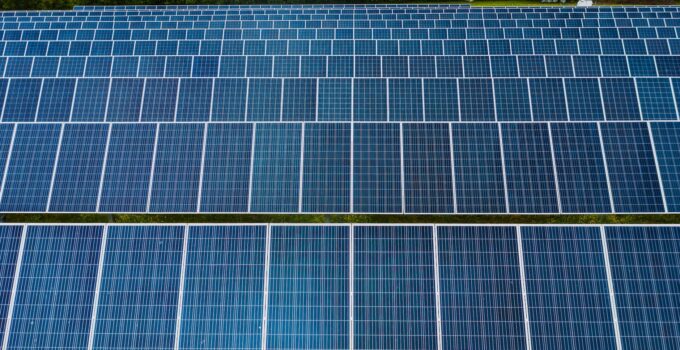Are you considering installing solar panels but wondering how much money you can actually save? Solar panels have become increasingly popular in recent years, thanks to their cost-saving benefits and positive environmental impact.
In this article, we will explore the true potential of solar panels and provide you with all the information you need to make an informed decision.
Understanding the Cost-Saving Benefits of Solar Panels
One of the primary reasons homeowners invest in solar panels is to save money on their energy bills. Solar panels harness the power of the sun to generate electricity, which can significantly reduce your reliance on traditional energy sources. By switching to solar energy, you can potentially eliminate or greatly reduce your monthly electricity bill.
Additionally, solar panels offer long-term cost savings. While the initial installation cost may seem high, the return on investment can be substantial over time. The savings you accumulate through lower energy bills can offset the upfront expenses of installing solar panels.
It is important to note that the amount you can save with solar panels depends on various factors, such as your location, energy usage, and the size of your solar panel system. Let’s explore these factors in more detail.
Calculating Your Potential Savings: Factors to Consider
Before diving into the potential savings, it’s important to understand the factors that influence your solar panel savings:
- Location: The amount of sunlight your location receives plays a crucial role in determining your savings. Regions with more sunlight will generate more electricity, resulting in higher savings.
- Energy Usage: The more energy you consume, the more you can potentially save with solar panels. Homes with high energy usage will see greater reductions in their electricity bills.
- Solar Panel System Size: The size and capacity of your solar panel system will directly impact your savings. A larger system can generate more electricity, leading to higher savings.
- Net Metering: Net metering allows you to sell excess electricity back to the grid, further maximizing your savings. Check if your utility company offers net metering programs.
By considering these factors, you can estimate your potential savings and make an informed decision about installing solar panels.
The Long-Term Financial Impact: Solar Panels vs. Traditional Energy Sources
When comparing the long-term financial impact of solar panels to traditional energy sources, the benefits of solar panels become even more apparent.
Traditional energy sources, such as fossil fuels, are subject to price fluctuations and increasing costs. As the demand for energy rises, so does the cost of traditional electricity. By investing in solar panels, you can protect yourself from these rising costs and enjoy stable, clean energy for years to come.
Furthermore, solar panels have a long lifespan and require minimal maintenance. Once installed, they can continue to generate electricity for 25 years or more, providing consistent savings throughout their lifetime.
On the other hand, traditional energy sources contribute to environmental pollution and climate change. By switching to solar energy, you not only save money but also reduce your carbon footprint and contribute to a greener future.
Exploring Government Incentives and Tax Breaks for Solar Panel Installation
Installing solar panels can be financially advantageous due to various government incentives and tax breaks available to homeowners.
The federal government offers a Solar Investment Tax Credit (ITC), which allows you to deduct a percentage of the installation costs from your federal taxes. Currently, the ITC offers a credit of 26% of the total installation cost. However, it’s important to note that the ITC percentage may change in the future, so it’s best to take advantage of this incentive as soon as possible.
In addition to federal incentives, many states and local governments offer their own incentives for solar panel installation. These incentives can include cash rebates, grants, or property tax exemptions. Research the incentives available in your area to maximize your savings.
Case Study: Real-Life Savings Achieved by Homeowners with Solar Panels
To illustrate the potential savings with solar panels, let’s look at a real-life case study. John and Sarah, homeowners in California, decided to install a solar panel system on their roof.
Prior to installing solar panels, John and Sarah’s monthly electricity bill averaged $200. After installing the solar panel system, their bill reduced to an average of $30 per month. This translates to a savings of $170 per month, which amounts to $2,040 per year.
Considering the installation cost of their solar panel system was $15,000 after incentives, John and Sarah would recoup their investment in approximately 7.4 years. Over the lifespan of their solar panels, they would save approximately $51,000.
This case study demonstrates the significant savings homeowners can achieve with solar panels. The exact savings will vary depending on individual circumstances, but the potential for long-term financial benefits is evident.
Tips for Maximizing Your Solar Panel Savings: Efficiency and Maintenance
To maximize your solar panel savings, it’s essential to ensure the efficiency and proper maintenance of your system. Here are some tips:
- Invest in High-Quality Solar Panels: High-quality solar panels may have a higher upfront cost but offer better efficiency and durability, resulting in greater savings over time.
- Regularly Clean and Inspect Your Panels: Keep your solar panels clean and free from debris to maximize their efficiency. Regularly inspect them for any damage or issues that may affect their performance.
- Monitor Your Energy Consumption: Be mindful of your energy usage and make efforts to conserve electricity. By reducing your overall energy consumption, you can further amplify your savings.
- Consider Energy-Efficient Appliances: Upgrade to energy-efficient appliances to reduce your energy consumption and increase your savings.
By following these tips, you can ensure your solar panel system operates at its optimal capacity, leading to maximum savings.
Frequently Asked Questions about How Much Can You Save with Solar Panels?
Here are some frequently asked questions about the potential savings with solar panels:
Q: How much can I save with solar panels?
A: The amount you can save with solar panels depends on various factors, such as your location, energy usage, and the size of your solar panel system. On average, homeowners can save anywhere from 40% to 70% on their electricity bills.
Q: Are there any upfront costs associated with solar panel installation?
A: Yes, there are upfront costs associated with solar panel installation, including the cost of the panels, inverters, installation labor, and permits. However, these costs can be offset by government incentives and long-term savings on your energy bills.
Q: How long does it take to recoup the investment in solar panels?
A: The payback period for solar panels depends on various factors, including the cost of installation and the amount of energy savings. On average, homeowners recoup their investment within 5 to 10 years.
Q: Do solar panels require maintenance?
A: Solar panels require minimal maintenance. Regular cleaning and inspection are necessary to ensure optimal performance. Most reputable solar panel companies offer warranties and maintenance packages to assist homeowners in maintaining their systems.
Expert Advice
Consulting with solar panel experts is highly recommended when considering the potential savings. They can assess your specific situation, provide accurate estimations, and guide you through the installation process. Reach out to reputable solar panel companies in your area to schedule a consultation and get expert advice tailored to your needs.
Conclusion
Installing solar panels offers significant cost-saving benefits. By understanding the factors that influence savings, exploring government incentives, and considering real-life case studies, you can make an informed decision about switching to solar energy.
Remember to maximize your savings by investing in high-quality panels, monitoring your energy consumption, and following proper maintenance practices. With solar panels, you can not only save money but also contribute to a greener and more sustainable future.






